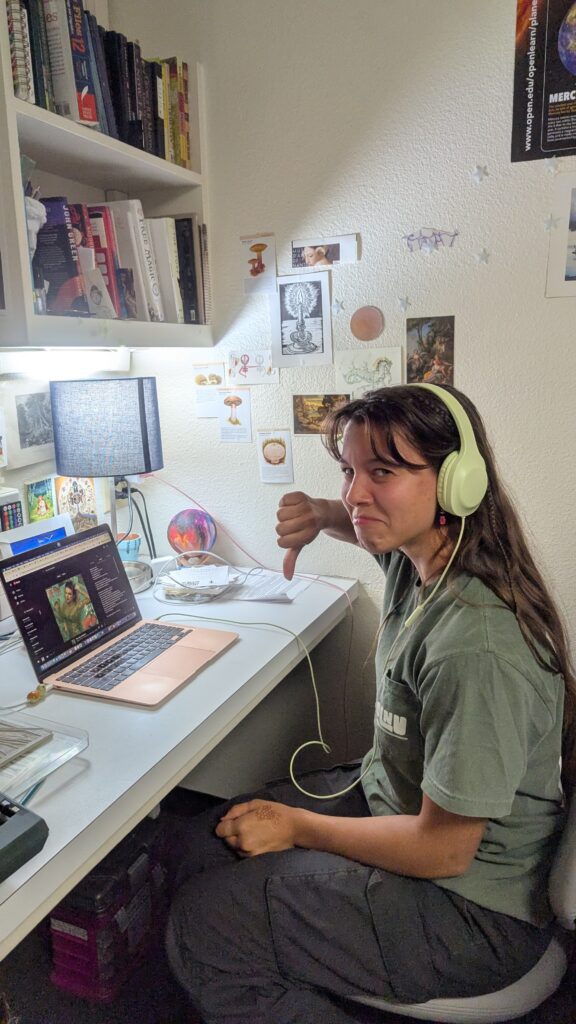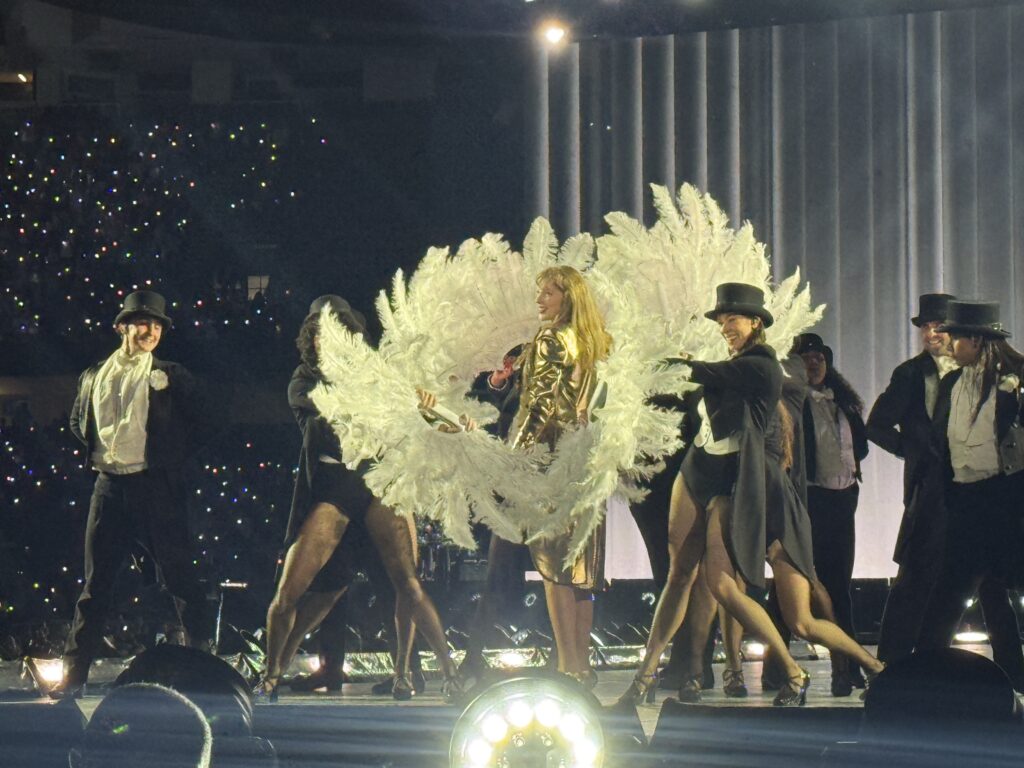Taylor Swift, to me, used to represent the idea that womanhood could be both glamorous and innocent. Her lyrics were whimsical and clever, the music was fun and my juvenile voice could keep up with hers.
But I’m not 14 years old anymore, and her music will be a lot better when she realizes she isn’t either.
Listening to “The Life of a Showgirl” feels like watching a teenager stand in front of her parents with her arms crossed and a hip popped, saying, “What’re you gonna do about it?”
This would be entertaining if it were Swift’s first stunt like this, if the music was good, and if she weren’t 35 years old.

She already did the “This is who I am now, mom,” thing with “reputation,” and back then, it mostly worked. But “reputation” was feisty, and every song was unique enough to be memorable. Not so with “The Life of a Showgirl.”
My first complaint is that I think the songs are boring, unmemorable, sad-girl pop. The album is called “The Life of a Showgirl,” but there is no hint of the loud, brassy burlesque music characteristic of the New York City showgirl scene in the ‘20s, ‘30s and ‘40s. The only attempt I could find to call back to any old era of music is a song about her fiancé’s manhood that shamelessly rips off “I Want You Back” by the Jackson 5.
This same lazy name association appears throughout the album in a series of hollow aesthetic-borrowing stunts that don’t bear any weight. “The Fate of Ophelia” is a particularly bad offender, as it is accompanied by a music video of Swift in various medieval-ish outfits and puddles of water, but has lyrics that understand Hamlet as well as I understand theoretical physics.
Swift describes Ophelia as a maiden alone in a tower who “lived in fantasy,” like a Disney princess. Swift sings, “You … saved my heart from the fate of Ophelia,” but the whole point of Ophelia’s character in Hamlet is that she has no agency, not that she didn’t have a good enough man in her life. That is why she kills herself. The song bulldozes through Shakespeare’s idea that listening to women — not having sex with them — is what gives stories happy endings.
The song, “Getaway Car,” from “reputation,” has a mostly consistent ecosystem of metaphors. The song’s aesthetic revolves around Bonnie-and-Clyde-style bank robbers, and most of its figurative language fits with that established aesthetic and time period.
But the first metaphor in the song about Shakespeare’s Ophelia is about a megaphone. Swift also uses the phrase “pledge allegiance to your hands, your team, your vibes,” and calls love “a cold bed full of scorpions,” despite there being no mention of scorpions in Hamlet.
By tossing Ophelia’s name and aestheticized suicide into a music video, Swift has claimed her as part of the repertoire of victimized characters she will be associated with. Ophelia no longer belongs to the Shakespeare girlies and the Lumineers lovers; she belongs to Taylor Swift, and I think she deserves better.
Another problem I have with the album is that Swift’s music isn’t aging alongside her. She’s 35, one of the most influential women in the world, and a billionaire, and she still feigns innocence and victimhood every chance she gets.

In “Eldest Daughter,” she uses a series of cringey TikTok-isms to complain about people being mean to her on the internet. The lyric, “every joke’s just trolling and memes,” has justifiably led to more trolling and memes.
The worst example of feigned innocence is the album’s ninth track, “Wood.” It sounds like Swift is trying to come into her adult sexuality, but she can’t take responsibility for it. Instead of portraying herself as a modern woman who wants what she wants, she sings that “his love was the key that opened my thighs.” What comes across to the listener is that she needs a man’s permission to want to be sexual.
“Wood” also doesn’t work for me because she doesn’t do anything fun or sassy with her voice to match the attempted tone of the lyrics. It feels like she’s trying to be Sabrina Carpenter, but the spunky sexuality of Carpenter’s songs is antithetical to the sad-pop-voice Swift can’t get out of.
Her obsession with youth and innocence, high school and victimhood, makes her music sound narcissistic to me, not relatable.
She’s proven in the past that she’s capable of spinning engaging stories and writing unique music. I think she can make good music again in the future, but it will require her coming to terms with her age, sexuality and level of literary understanding.
